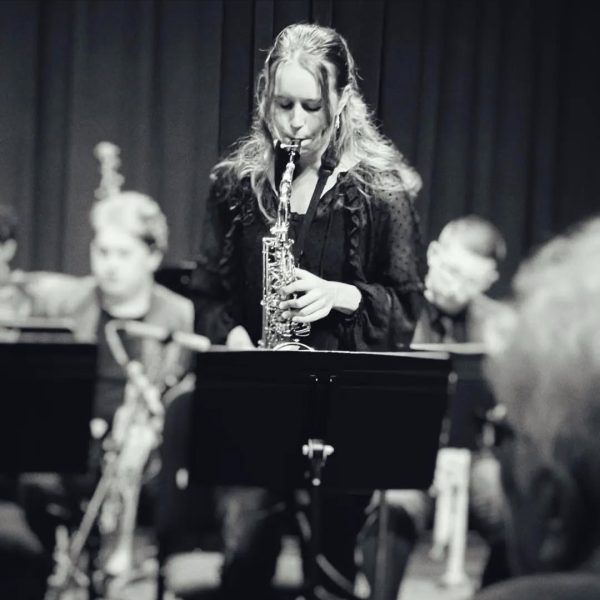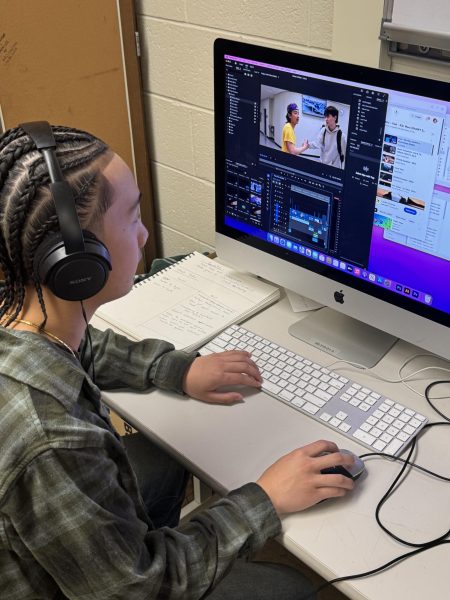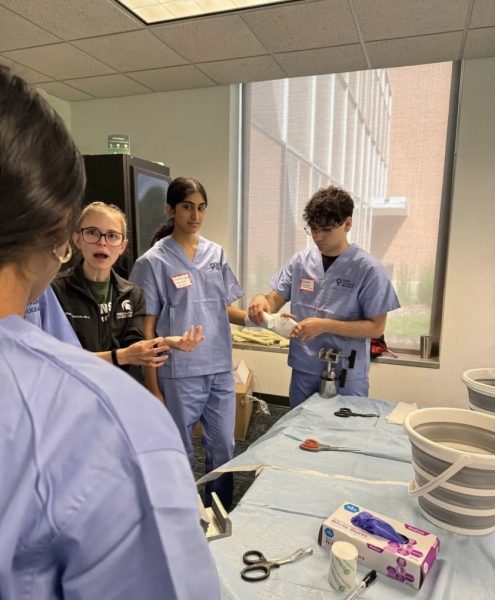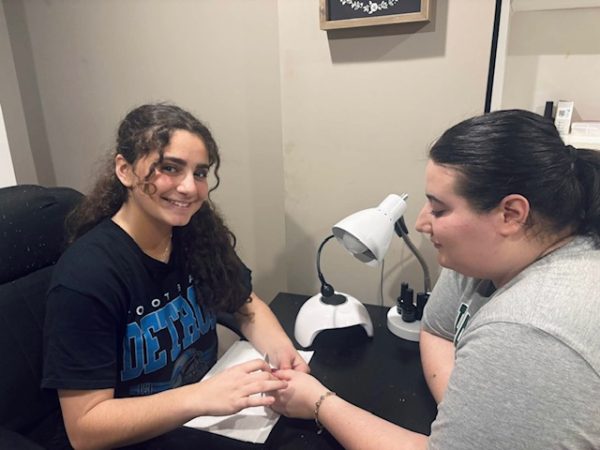Ramadan Kareem
Welcoming the Islamic month with open arms
During the ninth month of the lunar Islamic Calendar, the best period for Muslims out of the whole year where good deeds get counted exponentially and self-improvement mentally, physically and spiritually take place, the fasting month of Ramadan begins on Apr. 13.
“I am looking forward to understanding the beliefs and culture of Islam much more deeply by partaking within this year’s Ramadan,” sophomore Hamza Hussain said. “That, along with being able to connect with other Muslims around the globe to see how well they are tackling any obstacles that come in their way.”
One of the Five Pillars of Islam (the fundamentals of Islam which Muslims must follow), called Sawm, meaning to fast, takes place during the month of Ramadan. Throughout the period, all teen/adult Muslims fast from sunrise until sunset. At sunrise the meal before fasting is called Suhur and the meal where one breaks their fast at sunset is called Iftaar. People who are ill, pregnant, or are going through menstruation acquire exemption from fasting and must make up their missed fast any time during the year.
“I always look forward to iftaar (breaking fast) because it’s when I can sit with my family and have good food and good conversation,” senior Hafsa Khan said.
Ramadan doesn’t just include fasting eating-wise but also in terms of spirituality. For example, during the month, Muslims must give up distractions that prevent them from doing their essential tasks. This enables Muslims to control their passions becoming a person of good deeds and intentions for their Ibadah (the sake of God). The term “fasting” means to abstain and in this case Muslims must also refrain from factors that hinder their ability to develop self control and discipline, as well as engaging in making an effort to promote and act on bringing positivity.
“I’m glad that Ramadan is coming as it will help motivate me to focus and prioritize the important things in my life such as faith, my family and school,” sophomore Rohani Khan said. “Everything fulfilling in life comes with difficulty and despite me having to not eat or drink anything for hours until sunset, fasting helps me to to be more appreciative for what I have been blessed with and who I got those blessings from.”
Another crucial reason for the importance of Ramadan is that it is the same month that 1400 years ago the Quran the sacred book of Muslims, was revealed. For this reason, Ramadan is the most important month for Muslims so they take the time to fully acknowledge and immerse their selves in Islam and its teachings.
“During Sawm, we as Muslims get a taste of what it’s like to go hungry,” sophomore Rohani Khan said. “It really makes you appreciate what it must be like for the poor and the unfortunate who are in hunger everyday.”
Muslims can be granted extra blessings in addition to praying five times a day for times Lailatul Qadr (Night of Power), which is “better than a thousand months.” These last 10 nights of Ramadan are of great importance; so Muslims pray as much as they can during this period. After the month of Ramadan is over, Muslims celebrate Eid-ul-Fitr, a day of thanksgiving and happiness, one of the most joyous occasions for the Muslim community. After a long month of struggle and discipline, Muslims offer special congregations and give thanks to God on this day and reflect back on what a time it had been.
“I want others to know that Ramadan isn’t just about starving oneself just because,” Hussain said. “…but more about being selfless and creating more gratitude and awareness of the unlimited abundance of food.”
Your donation will support the student journalists of Eisenhower High School. Your contribution will allow us to purchase equipment and cover our annual website hosting costs.






